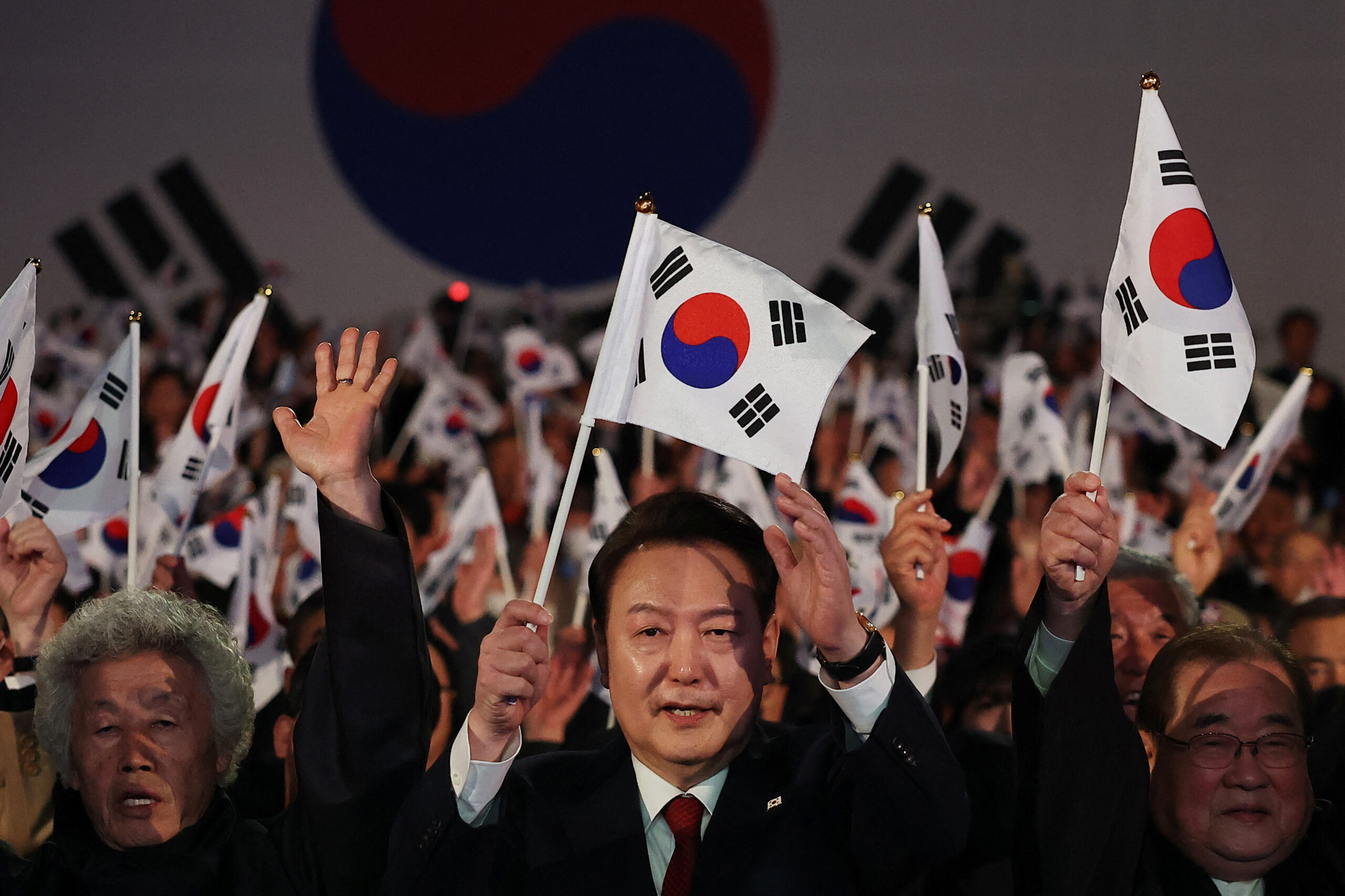As South Koreans prepare to cast their votes in the parliamentary elections on Wednesday, the political arena is dominated by key figures who wield significant influence despite not being directly on the ballot. Against the backdrop of an unpopular incumbent president, a scandal-plagued opposition leader, and two former justice ministers, the electorate faces the daunting task of deciding which politician they perceive as the lesser of two evils.
At the forefront of this political landscape is President Yoon, whose tenure has been marred by dwindling approval ratings and legislative challenges posed by an opposition-controlled parliament. Despite his past accomplishments as a prosecutor, Yoon’s presidency has been characterized by a lack of tangible progress on domestic issues, leading to widespread disillusionment among voters.
His main challenger, Lee, despite facing allegations of corruption and political tumult, remains a formidable contender poised to contest the presidency in 2027. As a proponent of working-class values and a less hawkish approach to foreign policy, Lee’s populist appeal resonates with segments of the electorate disillusioned with traditional political elites.
Former justice minister Cho Kuk, once hailed as a rising star in liberal circles, has experienced a dramatic fall from grace following a scandal involving academic admissions. However, his recent resurgence with the establishment of the Rebuilding Korea Party underscores the discontent among opposition supporters with the current leadership.
In contrast, PPP leader Han Dong-hoon, known for his prosecutorial prowess and conservative stance, embodies the antithesis to the ruling Democratic Party’s agenda. Despite accusations of political bias and aggressive tactics, Han’s popularity among conservative voters underscores their rejection of perceived corruption within the opposition ranks.
As South Korea braces for a pivotal electoral showdown, the choices made by voters will not only determine the composition of the parliament but also shape the trajectory of the nation’s political landscape. With competing visions and divergent agendas, the outcome of the elections holds profound implications for the future direction of South Korean governance and society.






